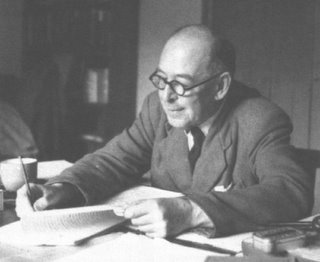C. S. Lewis on Desire

C. S. Lewis, writing in The Weight of Glory, described his understanding of self-denial and desire:
"The New Testament has lots to say about self-denial, but not about self-denial as an end in itself. We are told to deny ourselves and take up our crosses in order that we may follow Christ; and nearly every description of what we shall ultimately find if we do so contains an appeal to desire. . . .
Our desires are not too strong, but too weak
Indeed, if we consider the unblushing promises of reward and the staggering nature of the rewards promised in the Gospels, it would seem that Our Lord finds our desires not too strong, but too weak. We are half-hearted creatures, fooling about with drink and sex and ambition when infinite joy is offered us, like an ignorant child who wants to go on making mud pies in a slum because he cannot imagine what is meant by the offer of a holiday at the sea. We are far too easily pleased."Our problem is not that we love, but that we love lesser things. Created to glorify God and enjoy Him forever, we have turned our gaze inward and settled for far less. In the language of Romans 1, we have exchanged the glory of God for something corruptible and fading.
It would be easy to read such words and be discouraged, but that is not why they are offered here. Lewis provides an explanation for our longing. Why is it that on our best days--days when we are filled with laughter and joy in the presence of friends, stand in awe before the beauty of creation, or fall into bed exhausted after laboring wholeheartedly in work that we love--why is it that even on those days we still feel a yearning for something more?
It is because we are made for more, said Lewis. And there will come a day when "the door on which we have been knocking all our lives will open at last."
Bob

0 Comments:
Post a Comment
<< Home